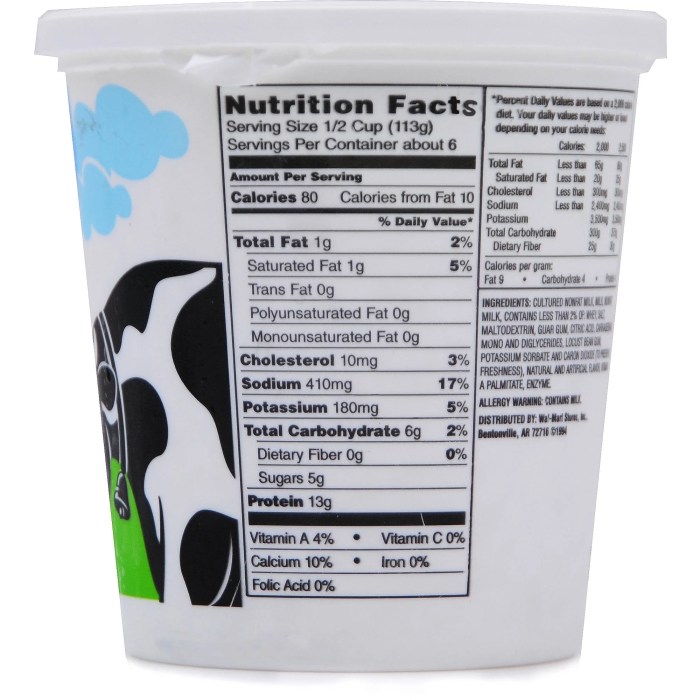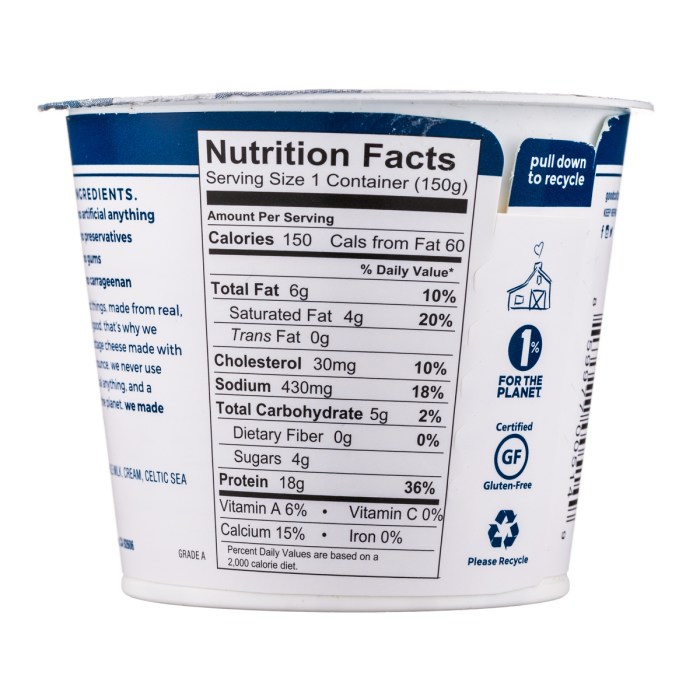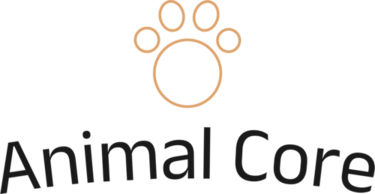Health Benefits of Cottage Cheese Consumption

Nutrition in 1/2 cup cottage cheese – Cottage cheese, a versatile and nutritious dairy product, offers a range of health benefits stemming from its unique nutritional profile. Rich in protein, calcium, and other essential nutrients, it contributes significantly to overall well-being. This section will delve into the specific advantages of incorporating cottage cheese into a balanced diet.
Cottage Cheese and Muscle Building and Repair, Nutrition in 1/2 cup cottage cheese
Cottage cheese is an excellent source of high-quality protein, crucial for building and repairing muscle tissue. Protein is composed of amino acids, the building blocks of muscle. The body uses these amino acids to synthesize new muscle proteins, aiding in muscle growth after exercise and facilitating the repair of damaged muscle fibers. The readily digestible protein in cottage cheese makes it an ideal post-workout snack or a component of a muscle-building diet.
A half-cup serving of cottage cheese offers a modest protein boost and calcium, beneficial for bone health. However, if you’re seeking a different dairy option with a sharper flavor profile, consider exploring the nutritional content of nutrition in shredded cheese , which provides a different balance of nutrients. Ultimately, the best choice depends on your individual dietary needs and preferences, both cottage cheese and shredded cheese can be part of a balanced approach to nutrition.
Consuming cottage cheese regularly can contribute to increased muscle mass and improved athletic performance. For example, a study published in the
Journal of the International Society of Sports Nutrition* showed that consuming dairy protein, including that found in cottage cheese, is effective in promoting muscle protein synthesis.
Calcium’s Contribution to Bone Health
Cottage cheese is a significant source of calcium, a mineral vital for maintaining strong and healthy bones. Calcium is a major component of bone structure, providing the necessary framework for support and protection. Adequate calcium intake throughout life is essential for preventing osteoporosis, a condition characterized by weakened bones and increased risk of fractures. The calcium in cottage cheese, combined with other nutrients like phosphorus and vitamin D (often found in fortified versions), contributes to optimal bone health and reduces the risk of age-related bone loss.
The recommended daily allowance of calcium varies depending on age and other factors, but cottage cheese can contribute significantly to meeting these requirements.
Other Potential Health Benefits of Cottage Cheese
Beyond muscle building and bone health, cottage cheese offers other potential health benefits. Its high protein content contributes to increased satiety, helping to manage appetite and promote weight management. The protein and calcium in cottage cheese can also contribute to improved gut health. Furthermore, cottage cheese is a relatively low-fat dairy option, making it a suitable choice for those watching their fat intake.
Research suggests a link between adequate dairy intake and reduced risk of certain chronic diseases.
- Promotes muscle growth and repair due to its high protein content.
- Strengthens bones and reduces the risk of osteoporosis due to its rich calcium content.
- Increases satiety, aiding in weight management and appetite control.
- May contribute to improved gut health.
- Offers a relatively low-fat dairy option.
- May contribute to a reduced risk of certain chronic diseases.
Visual Representation of Cottage Cheese’s Nutritional Value: Nutrition In 1/2 Cup Cottage Cheese

A half-cup serving of cottage cheese presents a visually compelling picture of its nutritional density. Understanding its appearance helps connect the visual with the nutritional benefits often overlooked. The seemingly simple food offers a surprisingly detailed visual profile that speaks to its nutritional richness.The texture of a half-cup of cottage cheese is immediately apparent. It’s a soft, slightly creamy curdled mass, not entirely smooth but possessing a pleasant, slightly grainy consistency.
This visible texture hints at the protein content, a key nutritional component. The color is typically an off-white or pale ivory, sometimes with slightly darker flecks indicating the natural variations in the curds. This unbleached, natural hue speaks to its minimally processed nature, reinforcing the idea of wholesome nutrition. The overall consistency is moist but not wet; it holds its shape in the container, but individual curds are easily separated with a fork, implying a delicate structure that’s easily digestible.
The visual representation of these characteristics—the creamy texture, pale color, and moist consistency—collectively communicate the wholesome and nutritious nature of this food.
Cottage Cheese in a Culinary Context
Imagine a vibrant summer salad featuring grilled chicken breast, colorful bell peppers, and ripe avocado. Nestled amongst these ingredients is a generous portion of cottage cheese, its creamy white contrasting beautifully with the vivid hues of the vegetables. The cottage cheese’s slightly grainy texture provides a pleasing counterpoint to the smooth avocado and the crisp vegetables, adding a subtle depth to the overall mouthfeel.
The overall presentation is one of freshness and health, with the cottage cheese acting as a visually appealing and nutritious binder, tying the elements of the salad together both aesthetically and nutritionally. The visual appeal enhances the perception of the dish’s nutritional value, suggesting a balanced and healthy meal.
Answers to Common Questions
Is cottage cheese good for weight loss?
Yes, cottage cheese can aid weight loss due to its high protein content, which promotes satiety (feeling full) and helps maintain muscle mass during weight loss.
Can I eat cottage cheese if I’m lactose intolerant?
Some lactose-intolerant individuals can tolerate small amounts of cottage cheese, as fermentation reduces lactose levels. However, others may experience digestive discomfort. Lactose-free cottage cheese options are also available.
How long does cottage cheese last in the fridge?
Typically, an unopened container of cottage cheese lasts for about 7-10 days past its sell-by date when stored properly in the refrigerator.
Does cottage cheese contain cholesterol?
Yes, cottage cheese contains some cholesterol, but the amount is relatively low compared to other dairy products.
